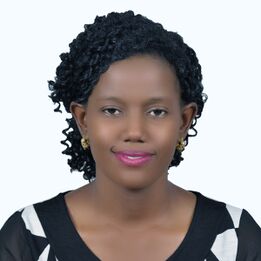Knowledge fuels change
For over a decade, Energypedia has shared free, reliable energy expertise with the world.
We’re now facing a serious funding gap.
Help keep this platform alive — your donation, big or small, truly matters!
Thank you for your support
Difference between revisions of "Webinar Series: Sustainable Energy in Humanitarian Settings"
***** (***** | *****) m |
***** (***** | *****) m Tag: 2017 source edit |
||
| Line 1: | Line 1: | ||
| + | {{Tabs | ||
| + | |Humanitarian_Energy_Knowledge_Hub|Humanitarian Energy Knowledge Hub | ||
| + | }} | ||
= Webinar Series '''Sustainable Energy in Humanitarian Settings''' = | = Webinar Series '''Sustainable Energy in Humanitarian Settings''' = | ||
Revision as of 08:16, 12 May 2022
- Humanitarian Energy Knowledge Hub
- [[{{{3}}}|{{{4}}}]]
- [[{{{5}}}|{{{6}}}]]
Webinar Series Sustainable Energy in Humanitarian Settings
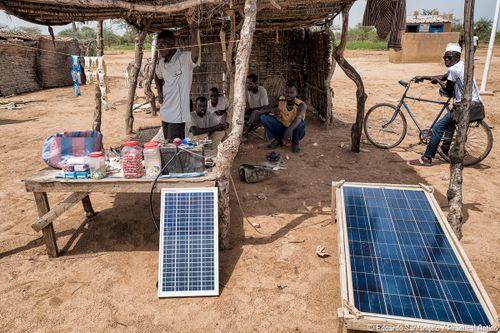
Today, over 130 million people are in need of humanitarian assistance due to conflict, natural disasters, and other complex global challenges. For many of these people, access to energy sources is critical for survival, and how they access it impacts their health, livelihoods, safety, and well-being.
Energy access for displaced people is not prioritized in the global humanitarian system. Current energy practices in situations of displacement are often inefficient, polluting, unsafe for users, and harmful to the surrounding environment. Moreover, institutional humanitarian operations such as water pumping, community lighting, and health clinics rely heavily on unsustainable fossil fuels, costing hundreds of millions of dollars annually.
Given the complex nature of humanitarian response and the challenges of integrating sustainable energy solutions into the humanitarian program cycle, there is not just one solution but a need for systemic actions to mobilise resources, build capacity and use the opportunity for sustainable energy solutions to enhance impact in sectors such as health, protection, food security, and WASH. read more
Against this background, key actors involved in displacement settings developed in 2018 the Global Plan of Action for Sustainable Energy Solutions in Situations of Displacement (GPA). It’s mission is to equip stakeholders with the capacity to mainstream sustainable energy solutions into programming, with the goal of delivering improved protection, dignity, and energy-related social, environmental, and economic benefits to displaced people.
As part of the outreach and capacity building activities of this movement, the International Committee of the Red Cross (ICRC) together with the Steering Group of the GPA and other partners are conducting a series of webinars on humanitarian energy issues to raise awareness and spread knowledge about different technologies, best practices and impacts.
- Finance, Technology Supply Chains, Market Linkages & Stakeholder Roles
- Tools & Delivery Models
- Energy-Livelihoods Nexus
Webinar 3: The Energy-Livelihoods Ecosystem in Humanitarian Settings - Finance, Technology Supply Chains, Market Linkages and Stakeholder Roles
In session 3, we will explore the ecosystem aspects of delivering energy for improved livelihoods purposes such as access to finance, market linkages, and technology supply chains, followed by a multi-stakeholder panel discussion on the roles of different partners in bringing energy-livelihoods projects to life.
Presentation
Speakers
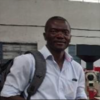
Paul T. Yillia, Global SDG7 Hubs
Dr. Paul T. Yillia has professional background in applied science and engineering with over 20 years of experience in undertaking analytical work and implementing technical assistance programs within the development context. He has served in various capacities, with assignments in several countries. Currently, he is leading efforts in Sierra Leone on the energy ecosystem to define the strategy for decentralized renewable energy (DRE) interventions for social infrastructure. Dr Yillia has interacted with various stakeholders, including governments at the highest political level, aid agencies, companies, academia, international organisations and MDBs. He has undertaken numerous consultancy assignments with several governments and international organizations, including FAO, UNDP, UN-Environment, UNESCO, UNF, UNIDO, UNOPS, UN-Water, and the World Bank Group. He has participated in the organisation and facilitation of several international events, with over 100 appearances and more than 80 presentations, including keynote speeches and moderation of high-level panels and discussions.
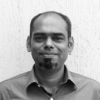
Abishek Bharadwaj, Equatorial Power
Abishek is currently the Co-Founder/CTO of Equatorial Power, a PUE based Mini-grid developer with operations in Uganda, Rwanda and DRC. Abishek has more than 12 years of experience in the mini-grid sector across solar, hydro and biomass based technologies. Prior to Equatorial Power, Abishek was involved in providing advisory support for over 200 mini-grid projects across Asia and Africa."
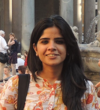
Rachita Misra , SELCO Foundation
Rachita Misra is the Associate Director (Knowledge and Policy) at SELCO Foundation. She brings in over a decade of experience in the development sector, with a primary interest in reducing uneven access to resources and opportunities for the marginalised. Seeing sustainable energy as a means for development, she examines the role of energy in furthering access to livelihood, health and well-being. Her work lies at the intersection of research, program design and implementation. With SELCO Foundation, over the past 7 years, Rachita has shaped the organization's knowledge management practice that is centered on active collaboration with end users, grassroot practitioners and field teams.
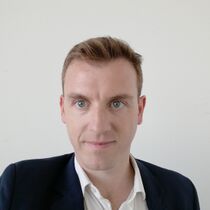
Florent Eveillé, EnDev
Herbert Nyaga, Energy4Impact
Herbert is an enterprise development expert with over 18 years’ experience in Micro finance, energy access and project design and delivery. His work experience cut across the countries in East Africa including Kenya, South Sudan and Rwanda. Since 2014, Herbert has led the implementation of several energy access projects in Rwanda, including Capital access for Renewable energy enterprises(CARE2), Scaling up off grid energy in Rwanda (SOGER), Indigo Solar Lighting Home Systems (ISL) with remarkable impacts to the lives of people living in rural areas. In the past 2 years, He has been spearheading the Productive use of energy for livelihood development among the refugees’ enterprises in Rwanda, a sub-component in the Renewable energy for Refugees project (Re4R) and Modern Electric Cooking Services (MECS), a project to identify pathways and promotion of electric cooking for Rwanda households. Herbert holds a master’s degree in Entrepreneurship development and a bachelors degree in Natural resources management.
Ndahimana Anaclet, Practical Action
Mr. Ndahimana Anaclet is a senior Renewable Energy Expert, actually Thematic Lead Energy and Agriculture (With Business Development responsibilities), but also the Renewable Energy for Refugee(RE4R) Project manager at Practical Action. As the project coordinator for the Renewable Energy for Refugee Project (RE4R) he has a leading role to delivering renewable energy investments through a market-led innovative approach in humanitarian settings for Solar home systems, clean cooking and delivery of street lights, working directly with refugees and host communities in Kigeme, Nyabiheke and Gihembe refugee camps in Rwanda. In the course of his career, he supported the Rwanda Energy Group and other stakeholders in the deployment of a commercially viable renewable Energy sector (Biomass, biogas, Improved cooking stoves and Solar sub-sectors). Anaclet Ndahimana has more than 18 years professional experience developing and managing programmes focused on Renewable Energy , this through the private sector engagement and creating an enabling environment for sustainable market development. He managed various project, including: ‘The Opportunities for Youth Employment Project- OYE project- MasterCard foundation funded (2013-2018)2. The Pico-hydro Sector development Project- Agence Wallonie de l'Air et du Climat funded (2013-2018), 3. The Water for growth/ Integrated Water Resources Management Program- Kingdom of Netherlands Embassy funded (2018-2019), 4. The ENDEV III Clean Cooking Project- ENDEV funded(2019-2021),5. The Renewable Energy for Refugee Project- IKEA foundation funded(2021-2022). He was also the Domestic Biogas Program Lead (2010-2013) with a direct advisory role to two governmental institutions in Rwanda, the Ministry of Infrastructure and the Rwanda Energy Group(REG-EDCL). He also conducted the first domestic biogas technical trainings in Burkina Faso and Senegal (West Africa).
Webinar 2: Planning Energy-Livelihoods Interventions in Humanitarian Settings - Tools and Delivery Models
In session 2, we will hear from organizations with expertise in planning and implementing energy access for livelihoods purposes, with a focus on inspiring and innovative delivery models emerging in conflict and crisis affected areas. Examples and experiences from Sierra Leone, Ethiopia, and India will be shared.
Presentations
Speakers
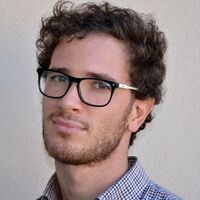
Andrea Ranzanici, Managing Director at HumEn - Humanitarian Energy PLC
Andrea has more than 10 years of experience as project manager and advisor in the field of sustainable energy access in sub-Saharan Africa. Based in Addis Abeba, Ethiopia, Andrea is now the managing director of HumEn. HumEn is an Ethiopian social enterprise established by international and national shareholders, which aspires to become the partner-of-choice for clean and sustainable energy access for humanitarian settings, organizations and operations, in Ethiopia and elsewhere.
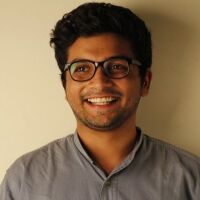
Shahaab Javeri, Program Manager - Research and Learnings, SELCO Foundation
Shahaab contributes across teams at SELCO Foundation, with regards to program strategy & design, communication, documentation, and knowledge management from an action research perspective. He has been with the organization for a period of 5 years and has been engaged in the development and communication sectors for a period of 10 years.
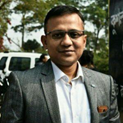
Fazle Muztaba, Envo Renewable Energy Services Pvt.Ltd
Fazle is the Co-Founder & Managing Director of Envo Renewable Energy Services Pvt. Ltd., a rural energy enterprise creating a holistic ecosystem to provide reliable energy access in the most remote and vulnerable areas of the North East Region of India. He is an ex-banker and entrepreneur with an experience of 10+ years in the decentralized renewable energy (DRE) sector. Fazle and his team with their DRE interventions is working for the underserved communities of the region which mitigates climate change and works as an enabler in Poverty Alleviation, opportunity for improved Livelihood, Health Services.

Robert Munis, Danish Refugee Council (DRC), Tanzania Robert is a DRC’s Livelihoods team leader with expertise around financial inclusion and renewable energy areas. He has been working in DRC Tanzania for 6 years and engaged in both humanitarian and development projects in Tanzania. He is a strategic partnership focal point for DRC Tanzania.
Webinar 1: Understanding the Energy-Livelihoods Nexus: Challenges and Opportunities in Humanitarian settings
This webinar focuses on the energy-livelihoods nexus in humanitarian contexts. It will present options for energizing different value chains as well as discussing common challenges in meeting needs not only with regard to end-users but also from development and private sector partners. A following panel discussion with practitioners and entrepreneurs from i.e. Kenya and Tanzania will highlight different examples of how renewable energy has benefitted livelihoods.
Presentation
Speakers
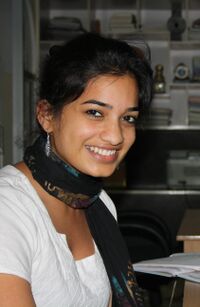
Surabhi Rajagopal, Senior Program Manager, SELCO foundation. Surabhi has been working with SELCO Foundation since 2011, on aspects of ecosystem building for energy access including financing, skill development and policy, from a Practitioner perspective. Her work includes bottom-up planning, programme design and policy engagement to integrate sustainable energy solutions for livelihood improvements and healthcare delivery, including in humanitarian settings. She has a Masters in Environmental Policy and Regulation from the London School of Economics, UK.
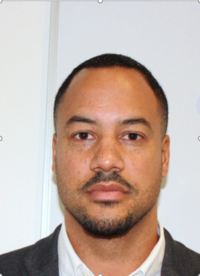
Alexandre Gachoud (International Committee of the Red Cross (ICRC)) has been working for the past 3 years with the ICRC as the Global Cash & Markets advisor with the Economic Security Unit based in Geneva. Before joining the ICRC, Alex has worked with different UN agencies and International NGOs. His current role with the ICRC consists of providing remote and in-country support on market analysis, Cash & Voucher Assistance (CVA), market support interventions and value-chain development in conflict-affected contexts where the ICRC operates. Alex also leads training on market-based programming for the ICRC and the broader Red Cross and Red Crescent Movement.
Vasco Amisi (Resilience Action, Okapi Green), Vasco, a Congolese refugee, spent the most part of life in internal displacement, as well as in refugee camps outside the country, living in Kakuma Refugee Camp, Kenya since 2010. Vasco is co-founder of Resilience Action formerly SAVIC which was founded in 2010 as a self-help group and later became a CBO and is now an NGO that is benefiting thousands of people in Kakuma. Having contributed to the starting of this rapidly growing community-based organization Solidarity & Advocacy in Crisis (SAVIC) has given a great chance to make change happen in the refugee communities in Kakuma. Under Vasco's leadership, cases of adolescent pregnancies have considerably reduced in Kakuma, through various programs initiated at SAVIC, which include the Nuru Vocational Training Center, the Ubuntu Savings & Loans Associations, and Peer Educator's Mentoring initiatives.
Turned entrepreneur, he is currently CEO of Okapi Green, a refugee-owned for-profit enterprise operating in Kakuma Refugee Camp in northern Kenya. Formalized in 2018, Okapi Green works to increase access to quality, affordable, and reliable electricity for the community of Kakuma. They installed a 20 kwp solar mini-grid to supply electricity to 200 small businesses, community centers, and individual households within the camp, supplying electricity to the end users via smart meters. In addition, the project also offer a Wi-Fi mesh network, to help boost productivity of the business being reached.
Emael Mrema is recognized amongst the year 2020 East Africa’s YALI Power Africa's young women leaders in the African energy sector. Emael is a former 2017 Mandela Washington fellow, and currently a member of the African Women Leaders Network (AWLN) Tanzanian chapter, under the Women Peace and Security pillar. Emael has over several years of experience in internal auditing and programme management within Government and non-Government sectors. Emael is a recipient of a 2011 Switzerland Government excellence scholarship for foreign scholars, having completed her Master of Science in Economics, majoring in management from the Universita della Svizzera Italiana in Switzerland. Emael is currently a programme officer with KAKUTE Projects which is a local NGO based in Arusha, Tanzania, that promotes technology innovation and adoption in East Africa. Objectively focusing on innovation knowledge transfer, nurturing local talent and the use of clean renewable energy resources to improve community livelihoods. Emael is passionate about working on projects focusing on improving all lives by supporting the sectors of energy, food, health, and education. She aspires as a Sustainable Development Goal ambassador hence her current interests include Africa’s Agenda 2063 and transforming our world and the 2030 Agenda for Sustainable Development. Finally, Emael is a proud mother to 2 young daughters, and she enjoys singing karaoke to refresh herself.
Past Webinars
- Webinar Series on Decarbonisation of Energy Infrastructure in Displacement Situations (Sept-Nov 2021)
- How to Integrate Renewable Energy Solutions into Humanitarian Response Planning? (Sept 2021)
- Landscaping : Capacity Building and Knowledge Sharing Opportunities (Feb 2021)
- Productive Uses of Energy in Humanitarian Contexts (Oct 2020)
- Powering Possibilities : Lessons Learned from Mini-grid Application in Conflict and Fragile Contexts (Sep 2020)
- Powering WASH : Renewable Energy for Water Supply in Humanitarian Settings (June 2020)
- Powering Humanitarian Health Operations : Sustainable Energy Solutions (May 2020)
- Energy Efficiency and Designing for Sustainability in Humanitarian Response (Feb 2020)
- Powering Humanitarian Facilities : Dialogue on Implementation Models (Jan 2020)
- Sustainable Energy for Household Cooking Needs in Humanitarian Settings (Dec 2019)
- Sustainable Energy for Powering Household and Community Lighting Needs in Humanitarian Settings (Nov 2019)
- Sustainable Energy for Essential Humanitarian Services : Outline of Energy Solutions and a Case Study on Solar Pumping (Sep 2019)
- State of Play : Sustainable Energy in Humanitarian Settings (June 2019)
Further Resources on Humanitarian Energy
Find here some useful resources for further information:
Available resources on energypedia
Global Plan of Action
- Global Plan of Action - Framework for Action
- Global Plan of Action - Unitar website
- Identification And Analysis Of Standard Clauses Of PPA And Leasing Agreements For Energy Provision In The Humanitarian Sector
- Feasibility and Applicability of a Global Guarantee Mechanism in Humanitarian Energy Contracts
- SAFE Workshop 2019 - Final Report
- Humanitarian Energy Conference 2019 - Final Report
- Renewable Electrification of Refugee Camps – Phase 1
Mercy Corps
Moving Energy Initiative
- The Costs of Fuelling Humanitarian Aid (2018)
- The Solar Energy Handbook - A guide to institutional solar for organizations working in humanitarian settings
- Private-Sector Engagement - The Key to Efficient, Effective Energy Access for Refugees. Toolkit (2016)
- Heat, Light and Power for Refugees Saving Lives, Reducing Costs (2015)
- Prices, Products and Priorities - Meeting Refugees’ Energy Needs in Burkina Faso and Kenya (2018)
Renewable Energy Transition
- McKinsey (2019): Energy Perspective 2019: Reference Case
- World Economic Forum (2019): Fostering Effective Energy Transition 2019
- World Economic Forum Website: Shaping the Future of Energy
Grantham Instittute
Blog Articles
- Rachel Kyte: https://www.seforall.org/news/on-world-humanitarian-day-its-time-we-finally-talk-about-energy-access
- Vijay Bhopal and Sandy Robinson: Is Sustainable Attainable?


